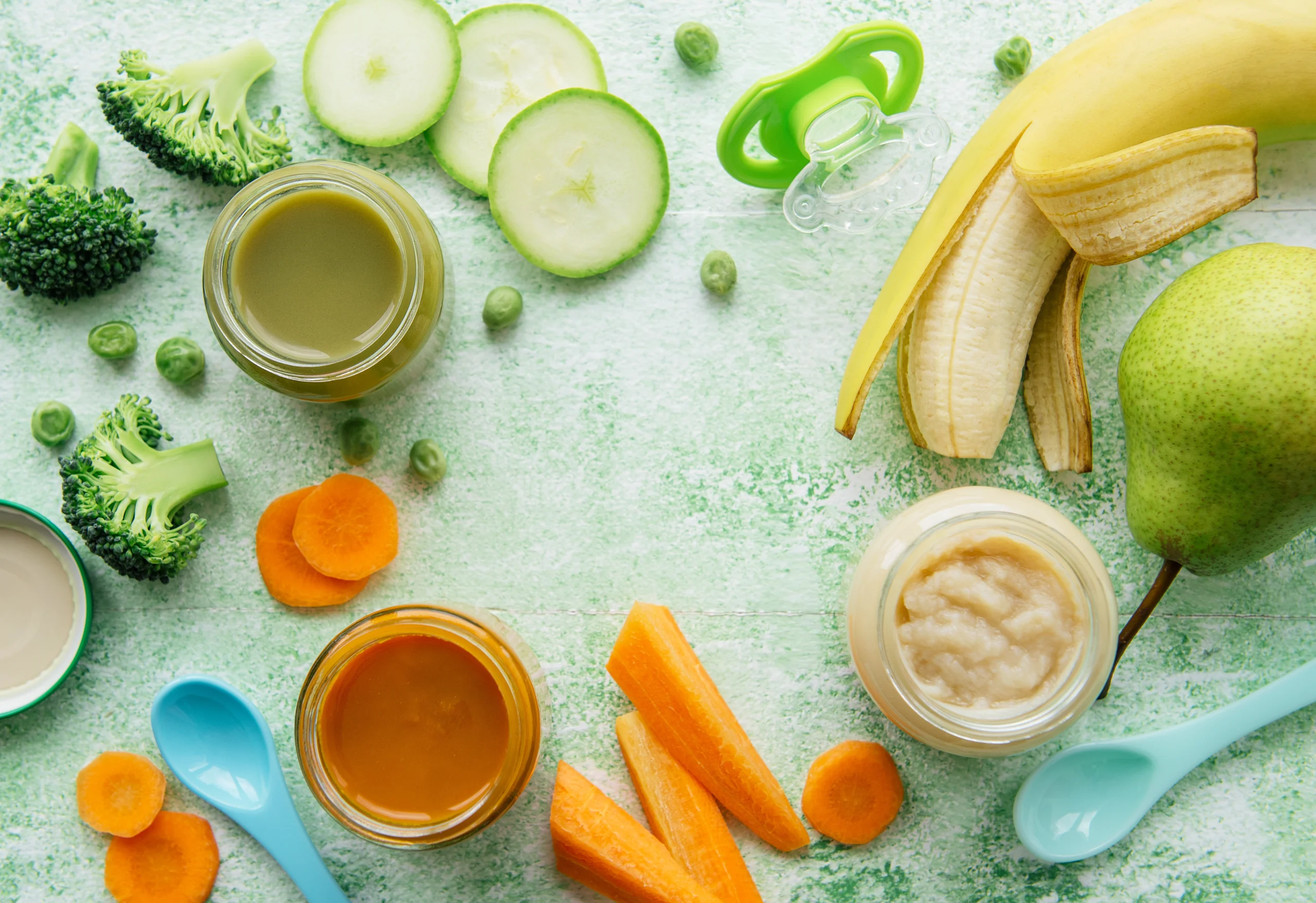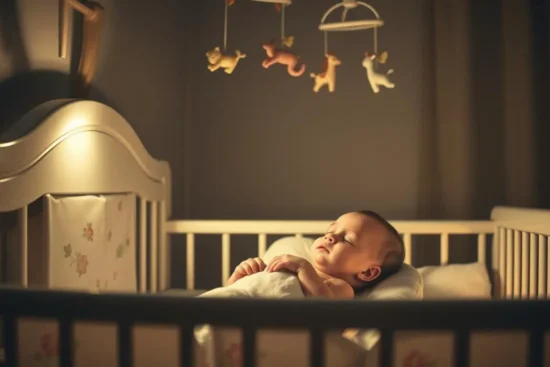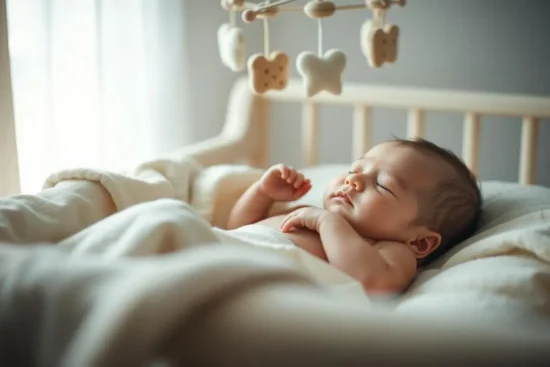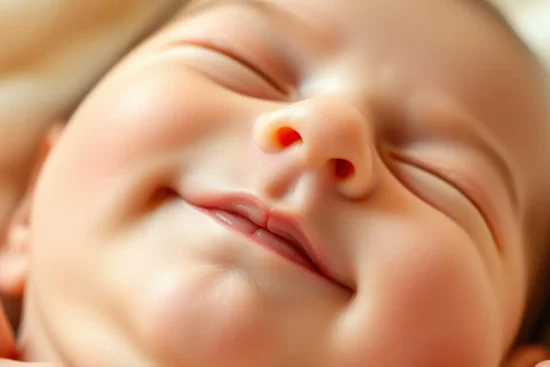
Homemade Baby Food Storage Guidelines: A Comprehensive Overview
Introduction to Homemade Baby Food Storage
Storing homemade baby food properly is crucial for keeping it fresh and safe. Many parents ask, how long is homemade baby food good for? The answer depends on how you store it. According to Weelicious, homemade baby food can be safely stored in the refrigerator for up to 48 hours. If you don’t plan to use it within that time, freezing is the best option. When frozen, homemade baby food can stay good for up to three months.
To keep the food fresh, use airtight containers. This helps prevent contamination and keeps the food’s nutrients intact. Always label each container with the date it was made, so you can easily track how long it has been stored. For freezing, consider using ice cube trays to portion out the food. Once frozen, transfer the cubes into labeled freezer bags for easier storage, as suggested by Homesteading Family.
When thawing, the best practice is to do so in the refrigerator overnight. This method ensures that the food thaws evenly and stays safe to eat. If you’re in a hurry, you can also place a frozen cube in a sealed bag and run it under warm water until it’s thawed. However, never refreeze any leftovers that have been heated, as this can lead to food safety issues, as highlighted in the article from Parents.
Additionally, avoid using glass containers for freezing baby food due to the risk of breakage from temperature changes. Instead, opt for BPA-free plastic containers or silicone trays designed for freezing. Following these guidelines will help ensure that your homemade baby food remains nutritious and safe for your little one, allowing you to provide healthy meals without the worry of spoilage.
Refrigeration: The Short-Term Storage Solution
Storing homemade baby food properly is essential for maintaining its freshness and ensuring the safety of your little one. When it comes to the question of how long is homemade baby food good for, the guidelines are clear: homemade baby food can be stored in the refrigerator for up to 48 hours and in the freezer for a maximum of three months. This timeframe is crucial for preserving the nutritional value and preventing spoilage.
After preparing your homemade baby food, it should be placed in airtight containers. This helps to prevent contamination and maintain freshness. It’s also important to label each container with the date it was made, allowing you to keep track of its storage duration. According to Weelicious, proper labeling is a simple yet effective way to ensure that you are feeding your baby food that is still safe to consume.
For those who may not use the baby food within the 48-hour window, freezing is the best option. You can freeze the food in ice cube trays for easy portioning. Once frozen, transfer the cubes into labeled freezer bags for easier storage. This method not only saves space but also allows for quick thawing and serving. As noted in Homesteading Family, frozen baby food cubes can be stored for up to three months, making it a convenient solution for busy parents.
When it comes time to thaw the frozen baby food, the best practice is to do so in the refrigerator overnight or by using a microwave. It’s crucial to never refreeze any leftovers that have been heated, as this can lead to food safety issues. The Parents website emphasizes the importance of discarding any uneaten food that has been previously heated to prevent bacterial growth.
In summary, understanding how long homemade baby food is good for and following proper storage guidelines can help ensure that your baby enjoys safe and nutritious meals. By adhering to these practices, you can provide your child with the best possible start in their culinary journey.
read Also: adults can eat baby food? Exploring the Benefits and Considerations
Freezing: Extending the Shelf Life of Homemade Baby Food
Freezing homemade baby food is an excellent way to extend its shelf life while ensuring your little one enjoys nutritious meals. Understanding how long homemade baby food is good for is crucial for maintaining its quality and safety. According to guidelines, homemade baby food can be stored in the refrigerator for up to 48 hours. If you want to keep it longer, freezing is the best option, allowing you to store it for up to three months without significant loss of quality.
To freeze homemade baby food effectively, start by using airtight containers or freezer bags. After preparing the food, portion it into ice cube trays or small containers. This method not only makes it easy to thaw just the right amount but also helps prevent waste. Once the food is frozen solid, transfer the cubes into labeled freezer bags for easier storage. Remember to include the date on the label to keep track of freshness, as recommended in the Making, Storing and Thawing Baby Food At Home guide.
When it comes to thawing, the safest method is to place the frozen baby food in the refrigerator overnight. This gradual thawing helps maintain the food’s texture and nutritional value. Alternatively, you can use a microwave for quicker results, but ensure the food is heated evenly and check the temperature before serving to avoid burns. It’s important to note that any uneaten food that has been previously heated should be discarded and not refrozen, as this can lead to bacterial growth, as highlighted in the Homemade Baby Food article.
Avoid using glass containers for freezing, as they can break under extreme temperature changes. Instead, opt for BPA-free plastic containers or silicone trays designed for freezing. Following these guidelines will help ensure that your homemade baby food remains safe and nutritious for your baby. For more tips on making and freezing baby food safely, check out the Homemade Baby Food: Tips for Making and Freezing Purees resource. By adhering to these practices, you can confidently provide your baby with healthy meals that are both convenient and delicious.
Food Safety Considerations for Homemade Baby Food
When preparing homemade baby food, understanding food safety considerations is paramount to ensure your baby’s health and well-being. One of the most common questions parents ask is, how long is homemade baby food good for? Proper storage techniques can significantly extend the shelf life of your homemade purees while maintaining their nutritional value.
Homemade baby food can be safely stored in the refrigerator for up to 48 hours. This short timeframe emphasizes the importance of preparing only what your baby can consume within this period. If you find yourself with leftovers or if you’ve made a larger batch, freezing is the best option. According to the Journal of Positive Psychology, homemade baby food can be frozen for up to three months without significant loss of quality.
To ensure the safety and freshness of your baby food, always use airtight containers. This prevents contamination and helps maintain the food’s flavor and nutrients. It’s also crucial to label each container with the date it was made.
This practice allows you to keep track of how long the food has been stored, ensuring you only serve your baby fresh food. For optimal storage, consider using ice cube trays to freeze small portions, making it easy to thaw only what you need at mealtime. Once frozen, transfer the cubes into labeled freezer bags for easier organization, as suggested by Weelicious.
When it comes to thawing frozen baby food, the safest methods are to place it in the refrigerator overnight or to use a microwave. Avoid refreezing any leftovers that have been heated, as this can lead to bacterial growth and compromise your baby’s safety. Always check the temperature of the food before serving to ensure it is evenly heated and safe for consumption. As noted in the Homesteading Family article, discarding any uneaten food that has been previously heated is essential to prevent foodborne illnesses.
In summary, by following these food safety guidelines, you can confidently prepare and store homemade baby food, ensuring it remains nutritious and safe for your little one. Remember, the key to successful homemade baby food is not just in the preparation but also in the proper storage and handling practices.
Choosing the Right Storage Containers for Baby Food
Choosing the right storage containers for baby food is essential for maintaining its freshness and safety. When preparing homemade baby food, it is crucial to use airtight containers to prevent contamination and preserve the nutritional value of the food. According to guidelines from Weelicious, labeling each container with the date it was made is vital for tracking how long the food has been stored. This practice helps ensure that you are aware of how long homemade baby food is good for, which is typically up to 48 hours in the refrigerator and three months in the freezer.
For optimal storage, consider using BPA-free plastic containers or silicone trays designed for freezing. Avoid glass containers for freezing, as they can break under extreme temperature changes. Ice cube trays are particularly useful for portioning baby food, allowing for easy thawing and serving. Once the food is frozen solid, transfer the cubes into labeled freezer bags for more efficient storage, as suggested by Homesteading Family.
When it comes to thawing frozen baby food, the best method is to place it in the refrigerator overnight. This gradual thawing process helps maintain the food’s quality. Alternatively, if you’re short on time, you can run a frozen cube under warm water until it thaws. However, it is crucial to never refreeze any leftovers that have been heated, as this can lead to food safety issues, as highlighted in the Parents article.
In summary, choosing the right storage containers for baby food involves selecting airtight, BPA-free options, properly labeling them, and adhering to recommended storage durations. By following these guidelines, you can ensure that your homemade baby food remains nutritious and safe for your little one. For more tips on making and storing baby food, check out the comprehensive overview on Weelicious.
Best Practices for Maximizing Homemade Baby Food Shelf Life
Storing homemade baby food properly is essential for ensuring its freshness and safety. Parents often wonder, how long is homemade baby food good for? The answer depends on how it is stored. According to guidelines from Weelicious, homemade baby food can be safely stored in the refrigerator for up to 48 hours. If you don’t plan to use it within this timeframe, freezing is the best option, allowing for storage of up to three months without significant loss of quality.
To maximize the shelf life of homemade baby food, it is crucial to use airtight containers. This prevents contamination and helps maintain freshness. Each container should be labeled with the date it was made, which is a simple yet effective way to keep track of how long the food has been stored. As noted in the article from Parents, using small portions for freezing can also help avoid waste, as you can thaw only what you need.
When preparing homemade baby food, consider using ice cube trays for portioning. This method allows for easy freezing and thawing, as you can pop out a cube or two as needed. Once frozen, transfer the cubes into labeled freezer bags for more efficient storage. This technique is highlighted in the Homesteading Family guide, which emphasizes the importance of using high-quality ingredients and proper preparation methods to ensure the nutritional value of the food is maintained.
When it comes time to thaw the food, the best practice is to do so in the refrigerator overnight. This gradual thawing method helps preserve the food’s texture and nutrients. If you’re in a hurry, you can place a frozen cube in a sealed bag and run it under warm water until it thaws. However, it’s important to never refreeze any leftovers that have been heated, as this can lead to food safety issues, including bacterial growth. Always discard any uneaten food that has been previously heated to ensure your baby’s safety.
By following these best practices, parents can confidently provide nutritious and safe meals for their little ones. For more detailed tips on making and storing baby food, check out the comprehensive guidelines from Weelicious and Parents.
Nutritional Considerations in Homemade Baby Food Storage
Storing homemade baby food properly is essential for maintaining its freshness and ensuring the health of your baby. One of the most common questions parents ask is, “how long is homemade baby food good for?” The answer depends on how you store it. According to guidelines, homemade baby food can be safely stored in the refrigerator for up to 48 hours. If you don’t plan to use it within this timeframe, freezing is the best option, allowing you to keep it for up to three months without compromising quality.
To ensure the safety and freshness of your homemade baby food, it is crucial to use airtight containers. This prevents contamination and helps maintain the food’s nutritional value. Always label each container with the date it was made, so you can easily track how long it has been stored. For instance, after preparing your baby food, you can freeze it in ice cube trays for easy portioning. Once frozen, transfer the cubes into labeled freezer bags for more convenient storage, as suggested in the Making, Storing and Thawing Baby Food At Home guide.
When it comes to thawing frozen baby food, the best practice is to do so in the refrigerator overnight. This method ensures that the food thaws evenly and remains safe to eat. If you need to thaw it quickly, you can place a frozen cube in a zipper bag and run it under warm water until it thaws. However, it’s important to never refreeze any leftovers that have been heated, as this can lead to food safety issues. As highlighted in the Homemade Baby Food article, discarding any uneaten food after feeding is crucial to prevent bacterial growth.
Additionally, avoid using glass containers for freezing baby food due to the risk of breakage from temperature changes. Instead, opt for BPA-free plastic containers or silicone trays designed for freezing. Following these guidelines will help ensure that your homemade baby food remains nutritious and safe for your little one. For more detailed tips on making and freezing baby food safely, check out the Homemade Baby Food: Tips for Making and Freezing Purees resource.
Troubleshooting Common Homemade Baby Food Storage Issues
Storing homemade baby food properly is essential for maintaining its freshness and ensuring the health of your baby. One of the most common questions parents have is, “how long is homemade baby food good for?” According to guidelines, homemade baby food can be safely stored in the refrigerator for up to 48 hours. If you don’t plan to use it within this timeframe, freezing is the best option, allowing for storage of up to three months without significant loss of quality.
To ensure the safety and longevity of your homemade baby food, it’s crucial to use airtight containers. This prevents contamination and helps maintain freshness. Always label each container with the date it was made, which is a simple yet effective way to keep track of how long the food has been stored. For instance, after preparing your baby food, you might place it in ice cube trays for easy portioning. Once frozen, transfer the cubes into labeled freezer bags for optimal storage, as suggested in the Making, Storing and Thawing Baby Food At Home guide.
When it comes to thawing frozen baby food, the best practice is to do so in the refrigerator overnight. This method ensures that the food thaws evenly and remains safe to eat. If you’re in a hurry, you can also place a frozen cube in a sealed bag and run it under warm water until it’s thawed. However, it’s important to never refreeze any leftovers that have been heated, as this can lead to food safety issues. As highlighted in the Homemade Baby Food article, discarding any uneaten food after feeding is crucial to prevent bacterial growth.
Additionally, avoid using glass containers for freezing baby food due to the risk of breakage from temperature changes. Instead, opt for BPA-free plastic containers or silicone trays designed for freezing. This not only ensures safety but also makes it easier to portion out meals. For more detailed tips on making and freezing baby food safely, refer to the Homemade Baby Food: Tips for Making and Freezing Purees resource.
By following these guidelines, you can ensure that your homemade baby food remains nutritious and safe for your little one, providing them with the best start in their culinary journey.
Conclusion: Balancing Convenience, Safety, and Nutrition
Ensuring the safety and nutritional quality of homemade baby food is paramount for parents. Understanding how long homemade baby food is good for is essential for maintaining both convenience and health. Proper storage practices can significantly extend the shelf life of these nutritious meals, allowing parents to prepare in advance without compromising safety.
Homemade baby food can be stored in the refrigerator for up to 48 hours. This short timeframe emphasizes the importance of consuming freshly prepared food to maximize nutritional benefits. If you find that your baby food will not be used within this period, freezing is the best option. According to Weelicious, homemade baby food can be frozen for up to three months. This method not only preserves the food’s freshness but also allows for easy meal planning.
When freezing, it is advisable to use airtight containers or freezer bags. After the baby food cubes are frozen solid, transferring them into labeled freezer bags can help keep your freezer organized and ensure you know when the food was made. Avoid using glass containers for freezing, as they can break under extreme temperature changes. Instead, opt for BPA-free plastic containers or silicone trays designed for freezing, as highlighted in the Homesteading Family guide.
Thawing frozen baby food should be done safely to maintain its quality. The best practice is to thaw in the refrigerator overnight or use a microwave for quicker results. However, it is crucial to never refreeze any leftovers that have been heated, as this can lead to food safety issues. As noted in the Parents article, always discard any uneaten food that has been previously heated to prevent bacterial growth.
In summary, balancing convenience, safety, and nutrition when preparing homemade baby food is achievable with proper storage techniques. By adhering to guidelines on how long homemade baby food is good for, parents can ensure their little ones receive safe and nutritious meals. For more tips on making and storing baby food, check out the comprehensive resources available at Weelicious and Homesteading Family.







